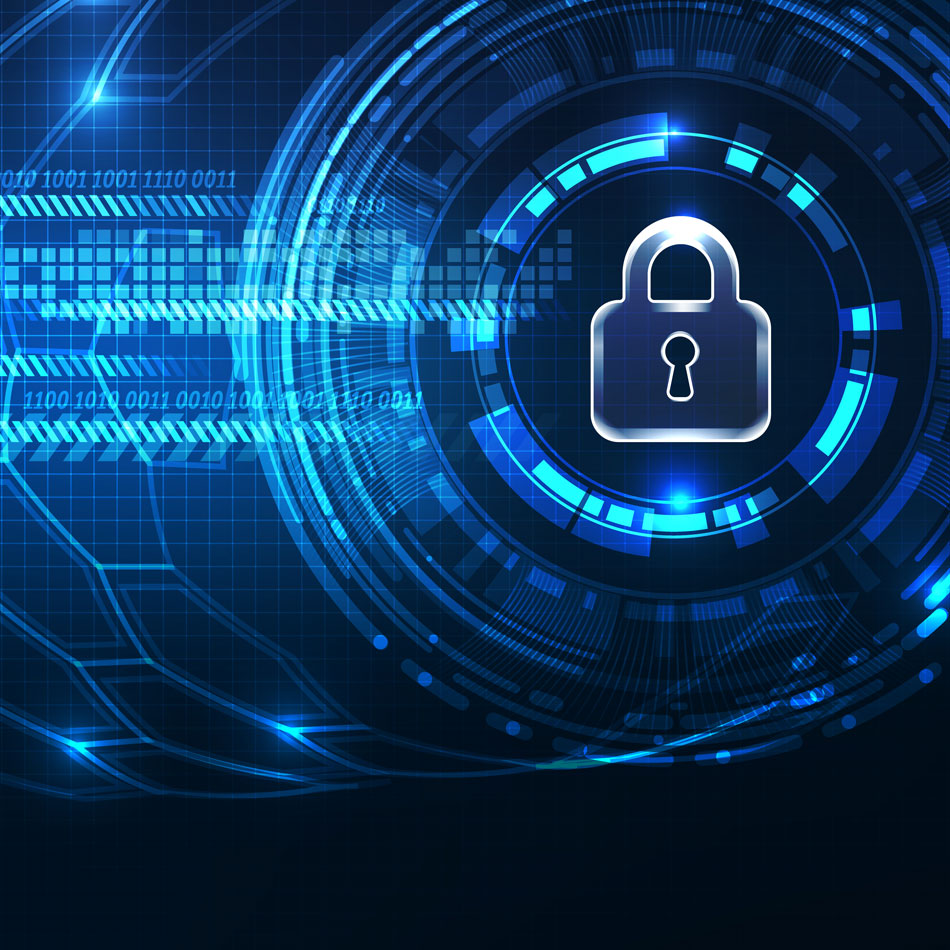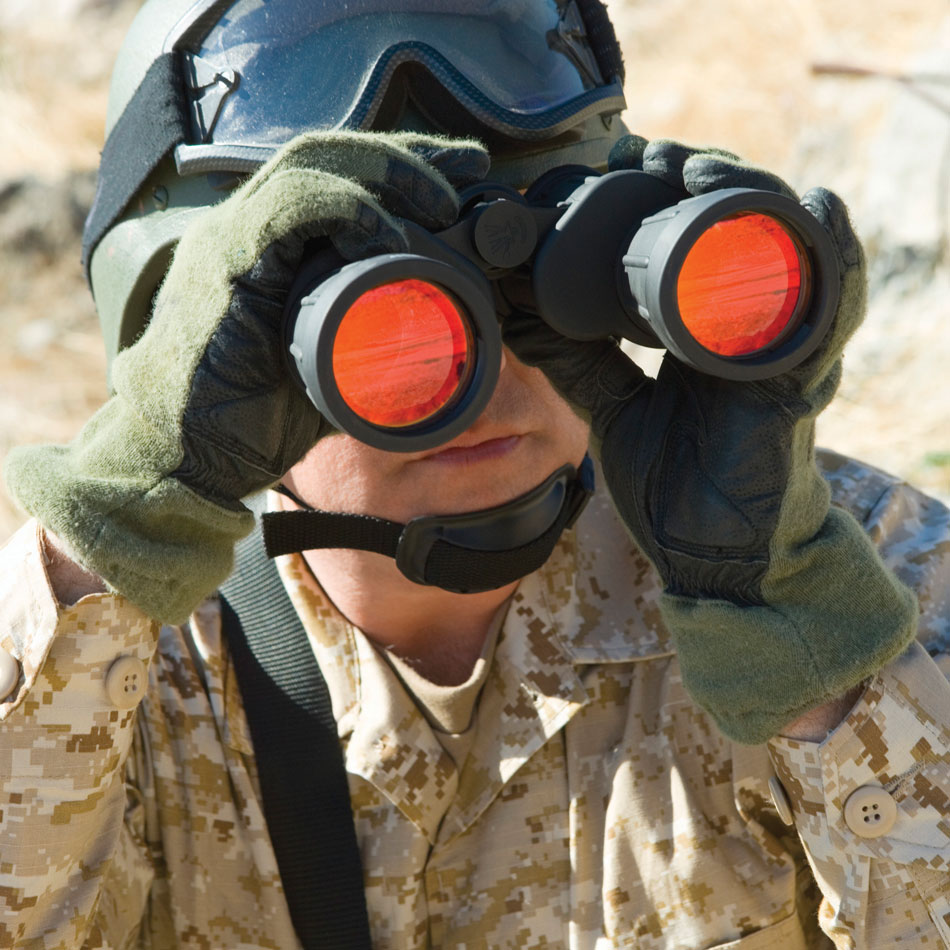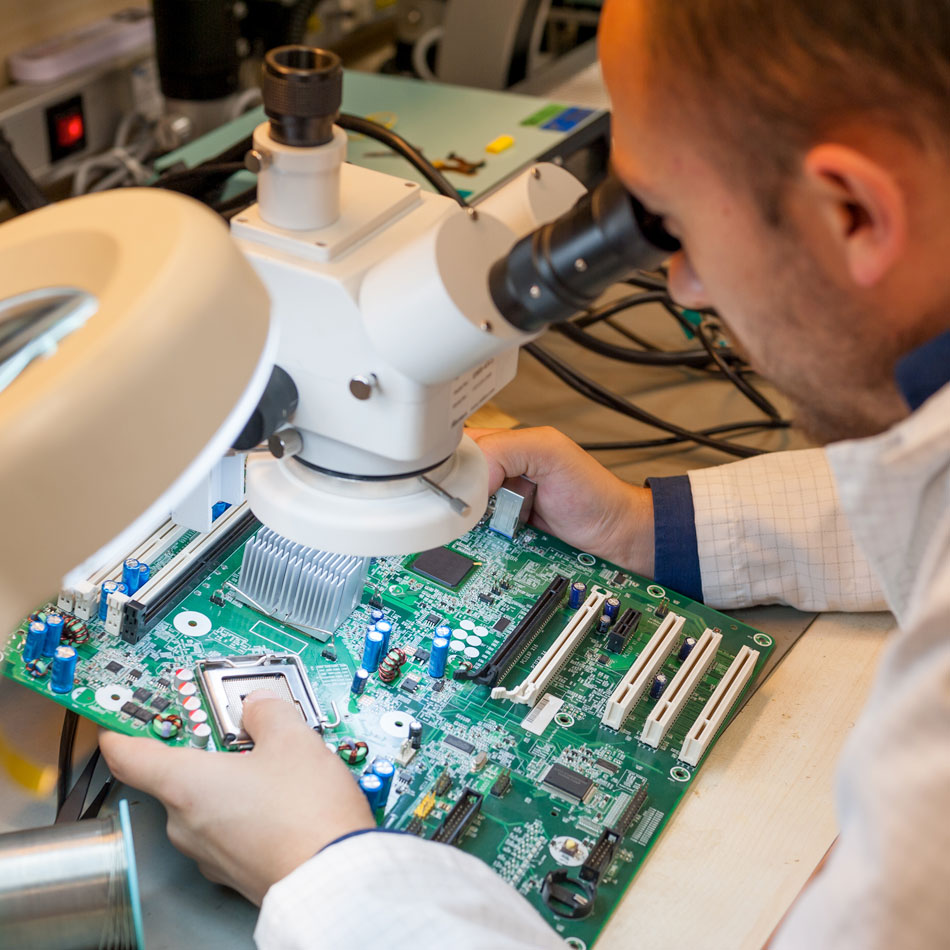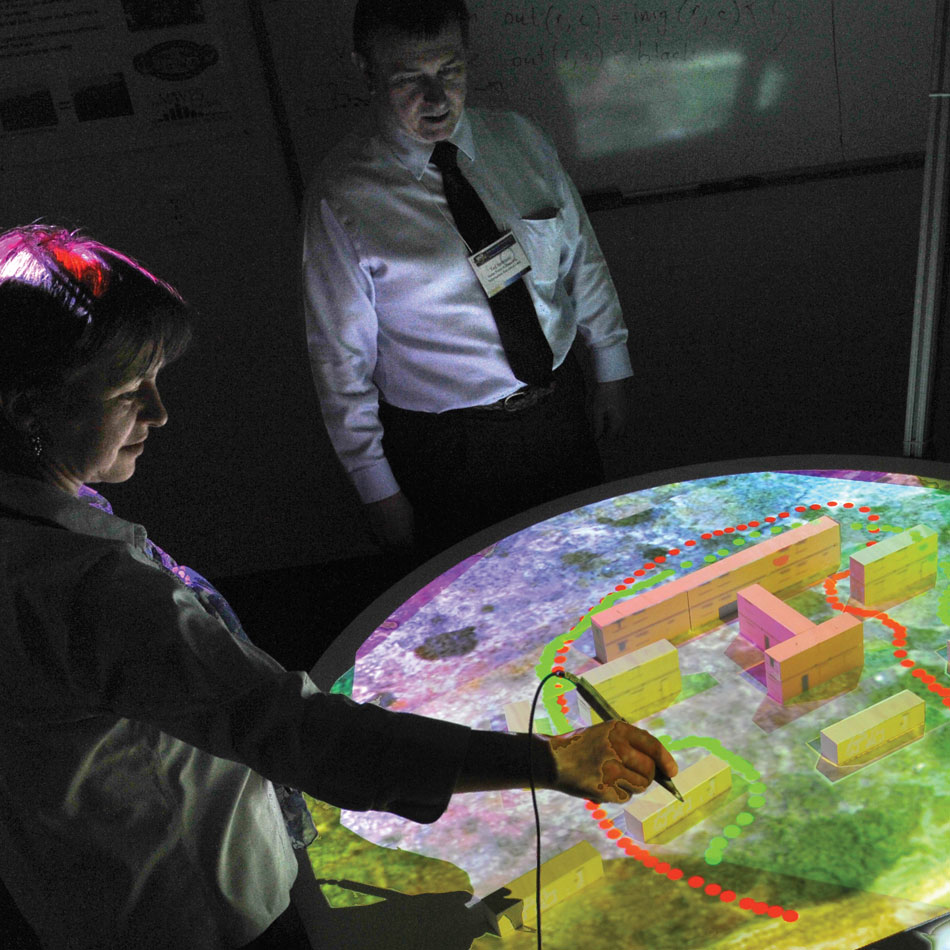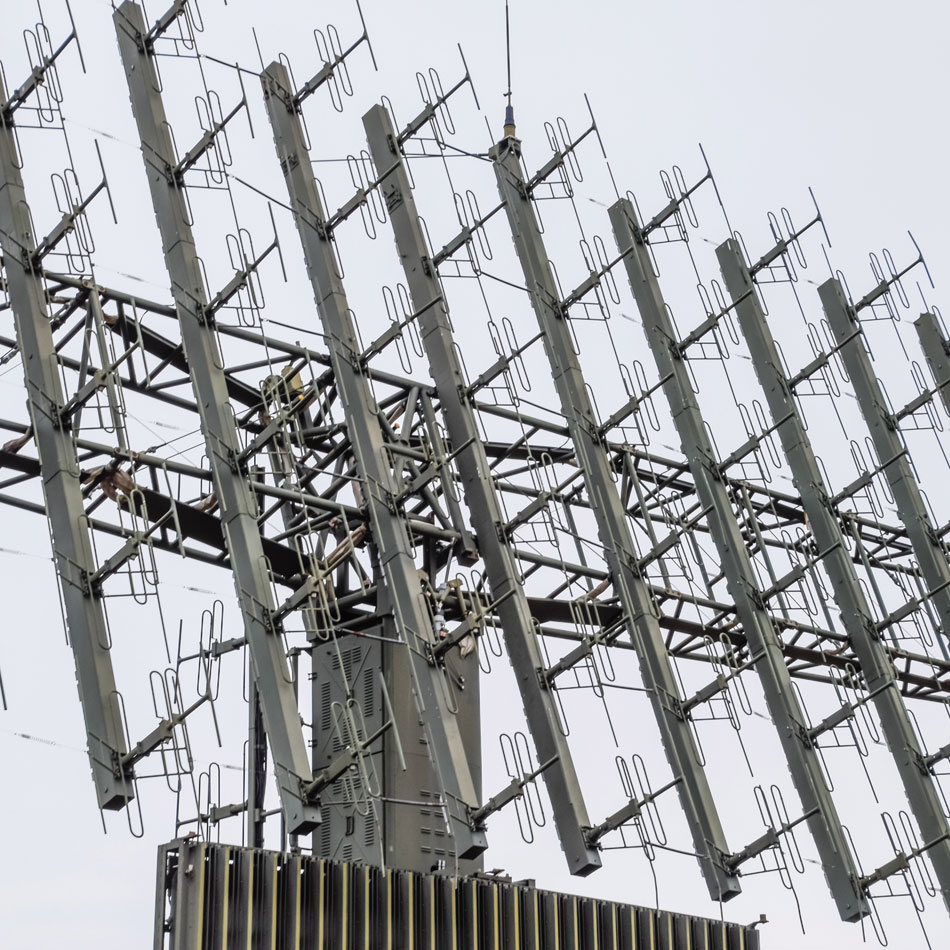Test & Evaluation Certificate
- Overview
- Program Requirements
- Why Choose a Certificate?
Delivery Method
ClassroomTest & Evaluation Certificate
Discover and develop your skills for testing and evaluating products, processes, and systems with our Test & Evaluation Certificate. Whether your career is in military, manufacturing, consumer products, or technology, you’ll gain practical knowledge of how to better develop your systems, serve customers, and create top quality products. You’ll learn from experts in the field through live experiments, group projects, and case studies.
Program Requirements
Certificate Requirements
- Effective January 2015, courses can only be applied to one certificate. If a core course for a certificate has already been applied to a previously-awarded certificate, then an additional elective must be taken.
- Certificates must be completed within 6 years; courses completed more than 6 years ago may not be applied toward certificate.
- All courses applied to a certificate program must be taken from Georgia Tech.
- This certificate does not require an application.
How it works
Your path to achievement is easy! Most certificate courses are offered in classroom locations around the U.S. You can also inquire about training at your location.
Cost
- Course load determines the cost of a certificate program.
- Calculate your total by identifying the courses needed and tallying individual course fees. Some programs offer discounts for course bundling.
Registration
- Select a certificate program, review the requirements, and determine your timeline for completion.
- Add courses to your shopping cart for purchase as you are ready to take them, or as a bundle if desired.
- Proceed to checkout to complete your registration. We accept multiple forms of payment including credit card, purchase order, and a private loan (upon request).
Completion
- Certificates must be completed within six years.
- After successful completion of most individual courses, a Certificate of Course Completion will be sent.
- After successful completion of all required courses, request a transcript and program certificate audit.
- Upon verification, GTPE will email your transcript and mail your Certificate of Program Completion. Some programs host a certificate award ceremony during the final course.
Once you earn your Georgia Tech Program Certificate, tout your success on your resume and LinkedIn profile, share with your employer, and celebrate an important career growth achievement!
Why Choose a Certificate?
Professional Certificates are ideal for developing new skills and building deep expertise in a specialized area to update your professional profile, advance your career, or broaden your knowledge base.
Certificates are an “anytime” credential
Start anytime - after graduation or later in your career - and gain deeper know-how in a specific area without the commitment to a degree.
Certificates demonstrate commitment
The dedication of time to earn a certificate demonstrates that you are committed to achieving a higher standard of professional knowledge in your industry.
Certificates provide immediate “ROE”
Georgia Tech learners master real-world skills and apply them to their career the day after completion.
Certificates stand out on your resume
A Georgia Tech credential carries the professional weight to give you a competitive edge.
Who Should Attend
This certificate is designed for program and project managers, engineers, systems analysts, and acquisition personnel.

How You Will Benefit
- Develop a systematic approach to testing and evaluating products for customers and for your organization’s processes and systems.
- Improve your skills in managing projects, satisfying deadlines, reducing risk, and adhering to budget requirements.
- Increase your productivity and your team’s productivity to gain a competitive edge in your industry.
- Establish and deepen contacts with peers and others throughout industry and government.
- Earn a recognized industry credential.
-
Grow Your Professional Network
-
Taught by Experts in the Field
Course Offerings
Any experiment that changes only one variable at a time squanders valuable resources—especially time. In a world overflowing with interconnected knowledge, technical professionals need a smarter, faster way to uncover deeper insights, optimize conditions, and drive innovation at lightning…
View Course Details »-
Mar 17, 2026 - Mar 20, 2026Register By Mar 9, 2026Atlanta, GA$1,800
-
Sep 15, 2026 - Sep 18, 2026Register By Jul 2, 2026Lake Buena Vista, FL$1,800
Building on the foundations of factorial experimental design from DOE I, thiscourse will provide techniques and practical advice for dealing with the reality ofcomplex experiments. Through a process of discovery and critical thinking,students will uncover reliable tools for recovering from…
View Course Details »There are no sessions scheduled at this time. Please check again later.
The Scientific Principles of Test and Evaluation course covers the application of test and evaluation (T&E) to systems or products and highlights the statistical methods that are most useful in that application. The course includes a brief summary of innovation, systems engineering,…
View Course Details »There are no sessions scheduled at this time. Please check again later.
Either COMP 2500P (contract) or DEF 4513P can be used as credit towards the certificate, but not both.
This advanced test and evaluation (T&E) course is designed for engineers, architects, test directors, developers, government program managers, and other individuals working in the defense industry. Curriculum focuses on advanced electronic warfare T&E topics that include hardware-in-the-loop …
View Course Details »There are no sessions scheduled at this time. Please check again later.
As many business sectors become increasingly information centric and network reliant, cybersecurity is becoming a critical pillar of the enterprise. Cybersecurity: A Systems Approach explores information security vulnerabilities and how to approach cybersecurity resilience as a complex system…
View Course Details »-
Sep 15, 2026 - Sep 17, 2026Register By Sep 1, 2026Atlanta, GA$1,795
Any experiment that changes only one variable at a time squanders valuable resources—especially time. In a world overflowing with interconnected knowledge, technical professionals need a smarter, faster way to uncover deeper insights, optimize conditions, and drive innovation at lightning…
View Course Details »-
Mar 17, 2026 - Mar 20, 2026Register By Mar 9, 2026Atlanta, GA$1,800
-
Sep 15, 2026 - Sep 18, 2026Register By Jul 2, 2026Lake Buena Vista, FL$1,800
Building on the foundations of factorial experimental design from DOE I, thiscourse will provide techniques and practical advice for dealing with the reality ofcomplex experiments. Through a process of discovery and critical thinking,students will uncover reliable tools for recovering from…
View Course Details »There are no sessions scheduled at this time. Please check again later.
The threat posed by infrared-guided missiles on the United States and other countries makes countermeasures increasingly important in the world of defense. In this Directed Infrared Countermeasures course, you will begin by reviewing the history of directed infrared countermeasures and…
View Course Details »-
Apr 14, 2026 - Apr 16, 2026Register By Apr 7, 2026Shalimar, FL$1,795
-
Jun 23, 2026 - Jun 25, 2026Register By Jun 15, 2026Warner Robins, GA$1,795
The three-day Electromagnetic Materials and their Measurement course introduces the physical concepts that govern electromagnetic materials, composites, and metamaterials. This physics is then applied in lectures and hands-on laboratory demonstrations to introduce learners to a variety of…
View Course Details »There are no sessions scheduled at this time. Please check again later.
Discover how to best execute the test and evaluation of airborne electronic combat (EC) systems. In this Electronic Combat Flight Testing course, explore threats and EC defensive systems, the EC test process, test monitoring equipment and test facilities, the role of modeling and analysis, and…
View Course Details »There are no sessions scheduled at this time. Please check again later.
“Failure is not an option” is how the famous expression goes, but how is failure prevented? Especially applicable when the penalty for failure is high, such as aerospace & defense, this course shows the ways in which you can prevent failure. Learn the design process including requirements,…
View Course Details »-
Apr 6, 2026 - Apr 7, 2026Register By Mar 16, 2026Online$2,000
Learn how to apply test and evaluation (T&E) to the cyber domain. The Fundamentals of Cyber Systems Test and Evaluation course approaches T&E from the perspective of Department of Defense (DoD) practitioners, covering the gamut of the roles, responsibilities, processes, procedures, and tools…
View Course Details »There are no sessions scheduled at this time. Please check again later.
This course provides individuals with the knowledge required to plan, conduct, and report on flight testing as outlined in Department of Defense directives. Using a case-study method, you will learn about test planning, formulating test objectives, understanding system parameters, test…
View Course Details »There are no sessions scheduled at this time. Please check again later.
This introductory course offers an overview of intelligence, surveillance, reconnaissance (ISR) enabling technologies, systems engineering, and test and evaluation (T&E). You will discover technical issues related to measures of performance, test planning, instrumentation, and sensor/system…
View Course Details »There are no sessions scheduled at this time. Please check again later.
As businesses become more dependent on interconnected systems for survival, they recognize a need to train their own personnel in assessment, exploitation, and remediation techniques. These “red teams” are becoming vital to organizations by exposing vulnerabilities early, implementing…
View Course Details »There are no sessions scheduled at this time. Please check again later.
The Department of Defense has migrated toward network-centric warfare concepts, and systems that support these concepts. Commercial technologies and systems developed for the military are being combined to provide connectivity at all levels of command and operational environments. If you're an…
View Course Details »There are no sessions scheduled at this time. Please check again later.
Are you new to near-field antenna measurements or considering the addition of an antenna-measurement facility or an upgrade of an existing facility? In this course, you will explore the fundamentals through the state-of-the-art in near-field antenna measurement techniques. Examine planar…
View Course Details »There are no sessions scheduled at this time. Please check again later.
The Scientific Principles of Test and Evaluation course covers the application of test and evaluation (T&E) to systems or products and highlights the statistical methods that are most useful in that application. The course includes a brief summary of innovation, systems engineering,…
View Course Details »There are no sessions scheduled at this time. Please check again later.
In the Test and Evaluation of RF Systems course, you will get to know the basics of radio-frequency (RF) circuits and systems performance that drive test requirements. You’ll discover the requirements for testing RF circuits and systems for radar, communications, and electronic warfare systems…
View Course Details »-
Mar 17, 2026 - Mar 19, 2026Register By Mar 12, 2026San Diego, CA$2,695
-
Aug 11, 2026 - Aug 13, 2026Register By May 15, 2026Las Vegas, NV$2,695
-
Nov 17, 2026 - Nov 19, 2026Register By Nov 9, 2026Lake Buena Vista, FL$2,695
The following courses are no longer offered but still apply if completed within the six-year rule:
- Fundamentals of Cybersecurity (2500P)
- Fundamentals of Cyber Test and Evaluation (DEF 5005P)
- Test and Evaluation of RF Defense Electronic Systems (DEF 5001P)
- Test and Evaluation Using Modeling and Simulation (DEF 5002P)
Related Certificates




